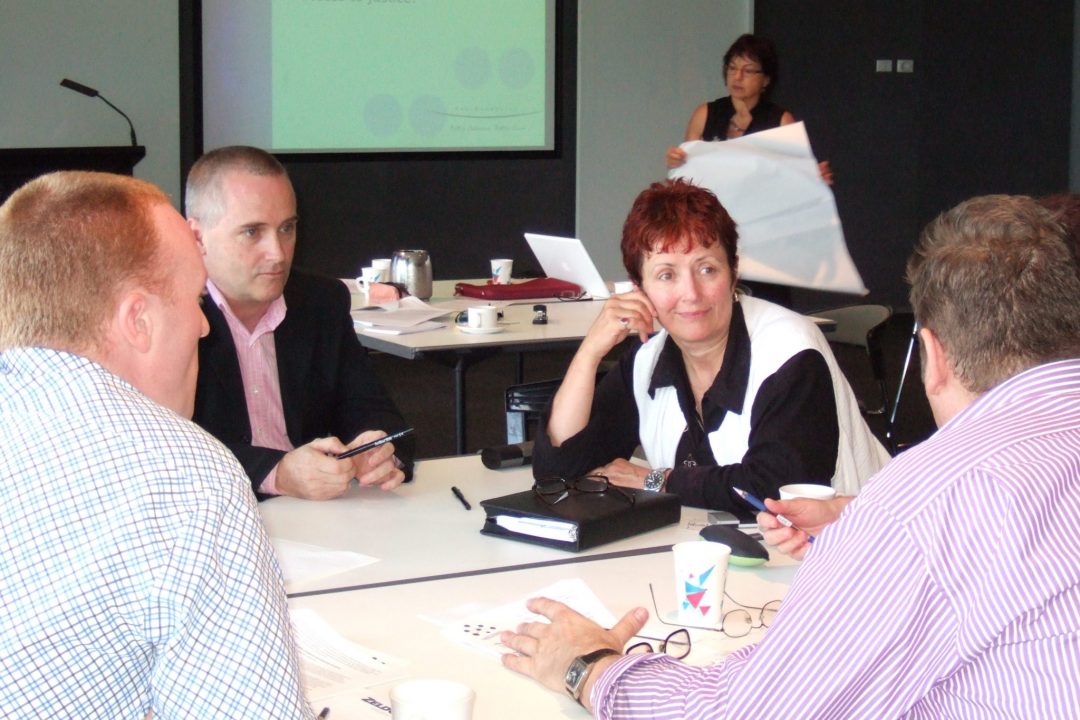
PIAC’s commitment to a robust
evaluation of the MHLSP is driven by a desire to capture the project outcomes
and learn from this important initiative.
PIAC commissioned consulting group WestWood
Spice to undertake the evaluation from the beginning of the MHLPS’s four pilot
projects. WestWood Spice has worked alongside PIAC and the project team since
May 2009 to design and implement an appropriate evaluation approach to reflect
the complexity of the project.
The purpose of the evaluation is to
determine the effectiveness of the pilot projects and their degree of success
in meeting desired outcomes. The evaluation will develop a solid, consistent
and reliable evidence base that can be used for policy, legal and other reform
initiatives. Quantitative and qualitative data is collected as part of the
evaluation, using an action research approach that is responsive to the
evolving and developmental nature of the project.
Westwood Spice Senior Consultant, Margaret
Scott, is working on the MHLSP evaluation. She works in close consultation with
the MHLSP team to refine the evaluation approach and build the understanding
and capacity of the team involved in the evaluation processes.
The MHLSP Steering Committee looked
at the evaluation framework in September last year. The framework was further
developed during the initial data collection that took place through to May
2010. The framework incorporates data collection processes for the overall MHLSP
as well as for the four individual projects.
The performance indicators are tailored
to each project. A critical issue for the evaluation is to capture the learning
and changes that occur at each pilot site. To this end, the pilot workers are
encouraged to reflect on their activities. A mentoring process is also in
place, intended to draw out individual learning and identify key issues that
may be addressed through systemic advocacy.
Over 20 MHLSP key stakeholders met on
19 November 2009 to promote engagement with the project and to provide input
into the key systemic issues to be addressed. The evaluation has included visits
to each of the pilot project sites to establish their baseline status.
Stage one of the evaluation was
completed in July 2010 and Margaret Scott presented the results on 11 July 2010
to the MHLP Steering Committee. The interim report found the pilot projects to
be working with over 154 clients, most with multiple issues. More than
215 separate issues were identified.
The interim report identified several recurring
themes: client complexity; the number of inter-related factors that impact on clients’
situations; the multiplier effects of individual client issues; and service
fragmentation.
Planning is
underway for the evaluation’s next steps. There will be another round of site
visits during September and October and the template used for data collection
will be refined ahead of the next round of data collection.
The evaluation is
proving to be a key learning experience for all project staff.
Pictured: MHLSP stakeholders meeting.
Other stories in this edition of Mental Health e-news, #2:
- Welcome
- Gamarada information night open to the public
- Valuing People with Disability in Australia’s Migration Program
- Persistence solves Centrelink dilemma
- In my view: Shopfront Social Worker, Jamie Alford